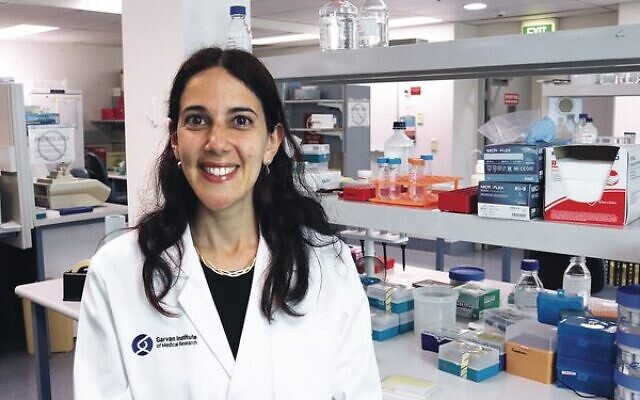‘A vaccine that won’t need updating’
Jewish scientist Dr Deborah Burnett of the Garvan Institute of Medical Research is at the forefront of research that could result in the next generation of variant-proof COVID-19 vaccines.
A JEWISH scientist is at the forefront of research that could result in the next generation of variant-proof COVID-19 vaccines.
Garvan Institute of Medical Research research officer Dr Deborah Burnett is the first author on a new paper that looks at targeting vulnerable areas on the virus surface that are the same in different coronavirus strains.
“The current vaccines we have are absolutely fantastic. They’re keeping people out of hospital, they’re slowing the spread,” she told The AJN.
“But the virus does keep mutating and it means we’re always playing catch up. So what we’ve done is set out a strategy that we hope will one day lead to a vaccine that will never have to be updated, or a lot less frequently.”
What her team found is that using proteins from viruses related to SARS-CoV-2, the virus that causes COVID-19, rather than from that virus itself, “may produce an antibody response that has greater resistance against emerging strains”.
Testing on mice that had been specialised to produce human antibody responses, researchers found that when immunised with a protein from the original SARS virus, SARS-CoV-1, 80 per cent of the antibodies bound to the class 4 epitope region, which does not genetically vary between strains, meaning the virus may be less likely to mutate to escape the antibodies.
“In contrast, when we used the SARS-CoV-2 protein, the mice generated antibodies that targeted regions of the coronavirus spike protein that are prone to mutations,” she said.
“Now that we’ve come up with the strategy, we’re hoping to expand that into different vaccines. This is where we are now hoping to collaborate with industry.”
Asked why vaccine researchers did not take this path from the beginning, Burnett said, “The first goal was to use the most obvious target which is the whole spike protein … because the first thing you do is you make a vaccine that works.
“And then once you have that you start thinking about how to make it future proofed.”
She added, “I honestly find it mind-blowing – to roll out a vaccine at that scale in such a short amount of time is absolutely incredible.”
Burnett, the daughter of geneticist and Tay-Sachs disease screening pioneer Leslie Burnett, began her medical career as a veterinarian. While she said she found the work rewarding, she was driven towards medical research by a desire to know why treatments sometimes worked and sometimes didn’t.
Working in autoimmune disease research early last year when the pandemic hit, her team realised that their skills and knowledge on how antibodies bind to their targets could be applicable to COVID-19 research.
“What’s really remarkable – I’ve never seen it happen to this extent before – is this amazing collaboration in the medical research community that just began,” she said.
“When we all realised how serious this pandemic was, labs came together doing anything they thought could be helpful, pooling all their data and all their resources together.”


comments